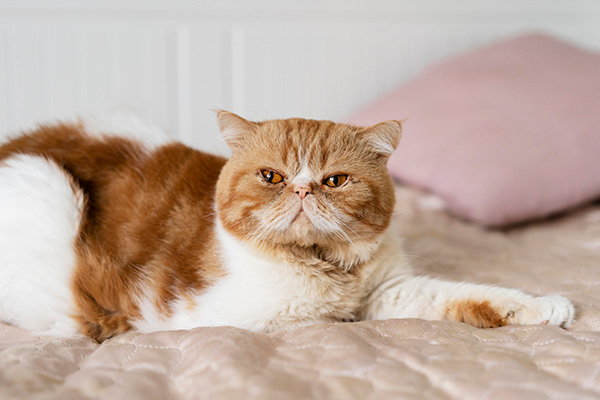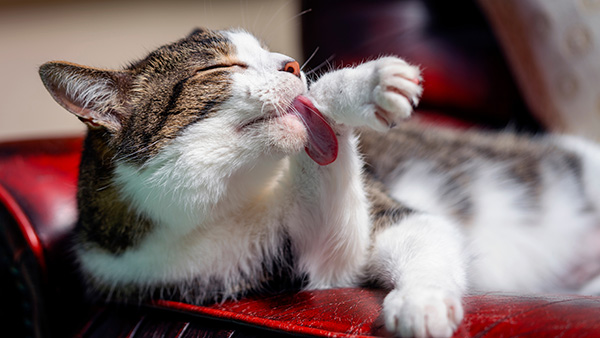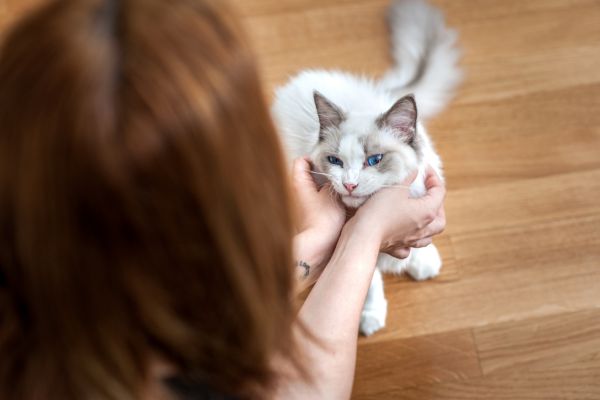Adopting a cat is a rewarding experience, but when it comes to choosing between a kitten and an adult cat, there are several reasons why an adult cat might be the better option. Welcoming an older cat into your home can provide numerous benefits that align well with different lifestyles and family dynamics. Here, we explore the many advantages of adopting a mature feline friend.
10 Reasons To Adopt an Adult Cat
1. What You See is What You Get
Older cats have established personalities, making choosing a pet that fits your lifestyle easier. Unlike young cats, whose personalities are still developing, mature cats show their true nature. This assists in finding the ideal fit for your household. Whether you're looking for a lap cat or a more independent kitty, you can confidently adopt an adult cat whose personality suits your needs.
2. Lower Energy Levels

Older cats are generally calmer and less hyperactive than kittens and younger cats. This makes them a better fit for busy professionals or families who prefer a less demanding pet. Mature cats require less constant supervision and are more content with lounging around. They appreciate regular playtime but also enjoy long, quiet naps, making them ideal companions for a relaxed household.
3. Better for Families with Young Children
Adult cats tend to be more patient and less likely to play rough, reducing the risk of scratches and bites. Their mature demeanor makes them safer companions for households with young kids, providing a more harmonious living environment. Adopting an older cat means introducing a furry friend who can calmly coexist with small children, ensuring a positive experience for everyone.
Consider that before bringing your new cat home, prepare a space with a litter tray, food, water, toys, and a scratching post. Having a new cat carrier ready will make the transition smoother and help your cat feel safe.
4. Less Destructive Behavior
Most older cats are less likely to chew on furniture or climb curtains. They have outgrown the teething and exploratory phases that lead to such destructive behavior, making them easier to manage in the home. An older cat is more likely to be litter box trained and accustomed to using a scratching post, ensuring that your house remains intact and free from unnecessary damage.
5. Lower Adoption Fees

Adopting an older cat typically involves lower adoption fees. Many shelters offer reduced rates for adult cats, and these cats are usually spayed or neutered and vaccinated. This can save you a lot of money compared to adopting a kitten, which usually requires extra veterinary care. By choosing a senior cat, you make a financially wise decision while gaining a loyal companion.
6. More Choices Available
Shelters often have a larger selection of adult cats, providing more options to find the perfect match. Older cats are frequently overlooked in favor of kittens, meaning you can choose from various personalities and appearances. This abundance allows you to take your time and select a cat that truly resonates with you and your family members.
7. Known Health History
Adult cats usually come with a known health history. Shelters typically conduct thorough health checks and provide detailed information about any existing conditions, allowing you to make an informed decision. This transparency helps you prepare for any medical needs your new cat might have, ensuring that you can provide the best care possible.
Remember that regular annual check-ups are advisable to maintain your cat's health. Older cats might need more regular check-ups to keep an eye on health concerns related to aging.
8. Companionship for Other Pets
Due to their established temperaments, adult cats often integrate better with existing pets. They can provide companionship to other animals in the home without the chaos that a playful kitten might introduce. Adopting an older cat means offering a calm, steady presence to help soothe and bond with other pets, creating a peaceful and balanced household.
9. Emotional Benefits
Owning an adult cat can reduce stress, anxiety, and depression. Studies have shown that the presence of a cat can improve mental health, making you feel happier and more relaxed. The unconditional love and companionship of an older cat can profoundly impact your overall well-being.
10. Giving a Second Chance

Adopting an older cat can save a life and reduce shelter overpopulation. By choosing an older cat, you provide a loving home to a pet that might otherwise be overlooked, significantly impacting their life. This act of kindness ensures that a senior feline finds its forever home, bringing joy and fulfillment to both the cat and the adopter. Many cats, including older ones, deeply appreciate a second chance at a loving home and can develop strong, affectionate connections with their new owners.
Addressing Potential Challenges
Adopting an older cat may have challenges, such as a longer adjustment period. However, you can help your new feline friend acclimate to their new environment and build a strong bond with patience and understanding. Setting up a quiet room and spending quality time with your new cat can ease this transition, ensuring a smooth and loving integration into your home.
By considering the unique benefits and addressing any potential challenges, adopting an older cat can be a deeply rewarding experience that brings happiness and companionship to your life.
Adopting a Senior Cat
Adopting a senior cat brings unique rewards and profound satisfaction. Senior cats, frequently overlooked in shelters, have well-defined personalities, which can simplify the process of finding a companion that fits smoothly into your lifestyle. With their serene and settled demeanor, senior cats can offer a peaceful and predictable presence in your home, eliminating the surprises that often come with adopting a younger cat or kitten.
Additionally, senior cats are incredibly grateful for a second chance at a loving home, offering a deep, affectionate bond that is both heartwarming and fulfilling. Offering a permanent home to a senior cat saves a life and enriches yours with a devoted and loving companion. The gratitude and love a senior cat displays can be profoundly moving, as they often form strong attachments with their new owners, appreciating the comfort and security of their new environment. By choosing to adopt a senior cat, you impact their life and yours, creating a unique and rewarding bond.
Frequently Asked Questions (FAQs)
1. How do I introduce my new adult cat to my household?
Gradually introduce your new cat to the household. Let the cat explore one room, gradually giving them access to other areas. Use a cat carrier for any necessary trips and bond with your new pet.
2. What should I feed my new adult cat?
Speak with a veterinarian to determine the most suitable food for your new cat's age and health requirements. Opting for high-quality cat food will ensure they get the nutrients they need.
3. Are there any ongoing costs I should consider when adopting an adult cat?
Ongoing costs include food, litter, regular vet check-ups, dental chews, and toys. Budgeting for these recurring expenses is crucial for your cat’s health and well-being.
4. How do I manage litter box training for an adult cat?
Most adult cats are already litter box trained, but placing the litter box in a quiet, accessible location can help reinforce good habits.
